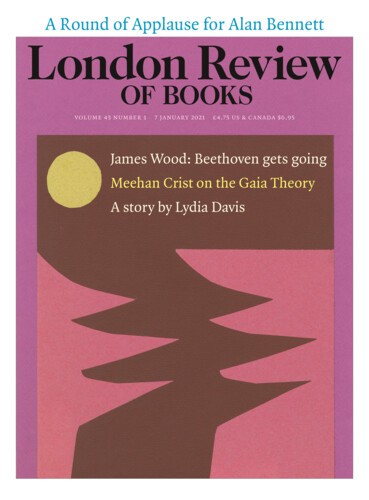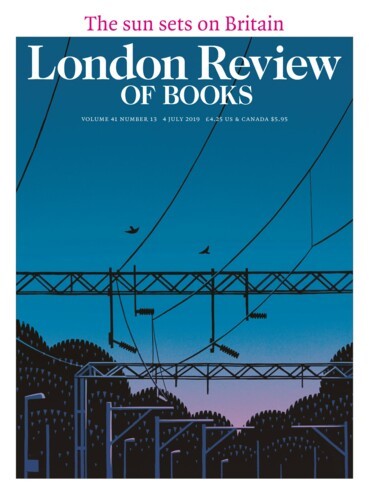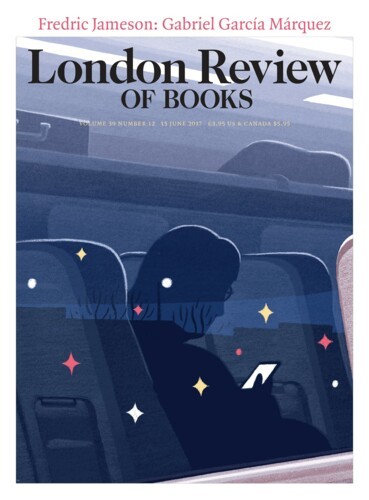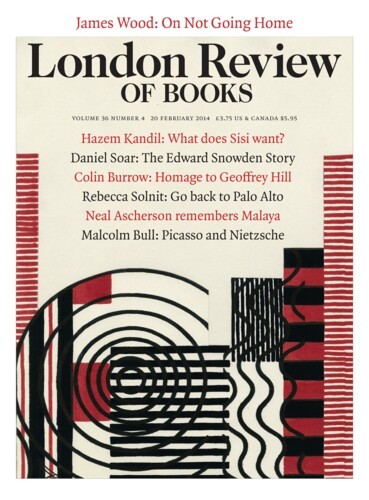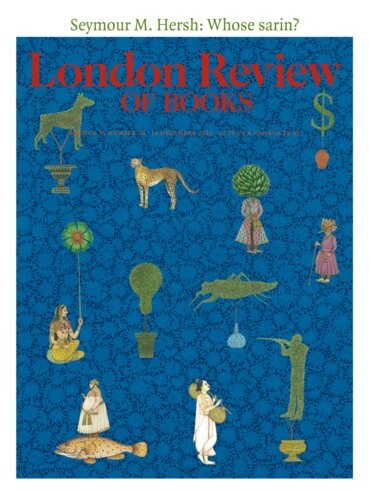A Great Deaf Bear: Beethoven gets going
James Wood, 7 January 2021
It took me some time to listen properly to Beethoven, to get past the heroic glower of his portrait, the worldwide canonicity. (Surely it didn’t help that our entire generation, like those before us, had to trudge through Für Elise and what we could manage of the Pathétique on the piano. I used to go to sleep to the broken sounds of those pieces, as my brother, five years older, toiled downstairs at his ‘homework’.) It wasn’t till my early twenties that I started listening to the piano sonatas as they demand to be heard: evenly, carefully. Later, I worked through a few on the piano, cold-fingered after years of keyboard hibernation. The Beethoven who emerged turned out to be closer in spirit and practice to Tallis and Byrd than I had imagined. This was a Beethoven not of overwhelming symphonic force but of delicate counterpoint and relentless chromatic logic, a composer who explores the subtlest harmonic developments, who delights in exploring fugues, dissonance, form.
